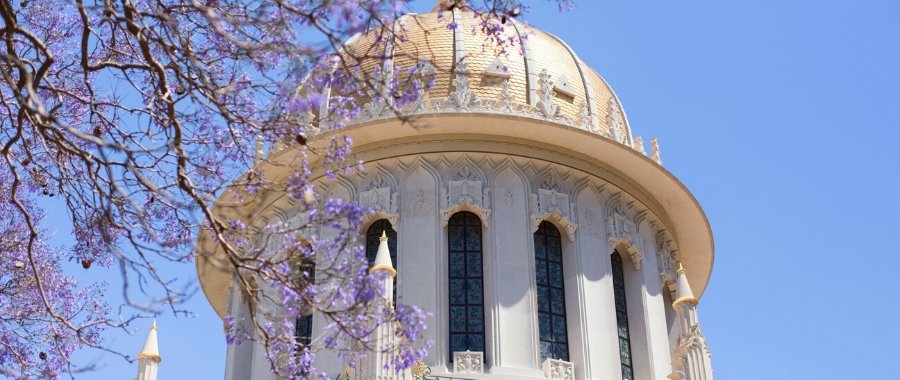In an era dominated by division and dissonance, one might inquire: how can the teachings of a 19th-century religious reformer resonate with contemporary societal challenges? The Báb, a pivotal figure in the Baha’i Faith, laid down a foundation of social principles that remain ever-relevant in addressing today’s complex issues. His teachings, while rooted in spiritual doctrine, also encapsulate a visionary blueprint for societal transformation. In examining these principles, one must confront a profound challenge: can the idealistic aspirations of the Báb effectively inform our modern sociopolitical landscape, fraught as it is with polarization and strife? This inquiry not only speaks to the adaptability of Baha’i principles but also to the innate human desire for cohesion.
First and foremost, it is essential to delineate the historical backdrop against which the Báb promulgated his social principles. Born in 1819 in Shiraz, Persia, the Báb was a catalyst for change during a tumultuous period characterized by social injustice and spiritual decline. His proclamation represented a clarion call for ethical renewal and improved social cohesion. Thus, the challenge exists—how does the context of the Báb’s own time inform the applicability of his social teachings in the contemporary globalized world?
Central to the Báb’s teachings are the principles of unity and justice. The Báb asserted that humanity is fundamentally interconnected. This concept of unity transcends mere tolerance; it advocates for a profound recognition of our shared human experience. Yet, in a society rife with tribalism and partisanship, fostering genuine unity poses a formidable challenge. Skeptics may question the feasibility of synchronizing diverse cultural, ethnic, and ideological perspectives into a cohesive societal fabric. However, the Báb’s teachings implore us to transcend superficial divisions and engage with underlying commonalities. Their echoes can be found in contemporary discourses surrounding communal identity and social solidarity.
Moreover, the Báb placed a significant emphasis on justice as a cornerstone of societal health. He championed the idea that every individual possesses inherent dignity, meriting equitable treatment and opportunities. In recognizing this intrinsic worth, society engenders a moral imperative to rectify injustices and to strive for inclusivity. The challenge, however, remains: how can societies implement fair systems of justice that do not merely address surface-level inequities but also dismantle systemic roots of oppression? The Báb’s principles invite introspection into the mechanisms of governance that uphold or undermine justice and challenge individuals to hold accountable those in positions of power.
Education also occupies a pivotal role in the Báb’s vision. He advocated for universal education, suggesting that knowledge is a divine gift that empowers individuals to transcend ignorance and prejudice. Yet today, disparities in educational access present a stark challenge. This raises an important question: how do societies ensure that education serves as a unifying force rather than a divisive one? The Báb’s emphasis on the transformative power of education as a vehicle for social harmony serves as an inspirational benchmark. Thus, rather than viewing education merely as a means to an economic end, societies are urged to contemplate its potential to foster moral and ethical development.
An additional tenet of the Báb’s teachings is the notion of a new social order, one predicated on consultation and collective decision-making. Such principles have profound implications for governance, advocating for systems that prioritize the voice of the community rather than autocratic rule. However, realizing this paradigm in practice remains a complex endeavor. The challenge lies in cultivating a political landscape that is genuinely participatory and inclusive. The international community’s entrenchment in longstanding customs and bureaucratic inertia often stymies attempts at meaningful reform. Hence, the appeal of the Báb’s teachings is not merely in their visionary essence but in their call for a practical reconfiguration of societal hierarchies.
The Báb’s teachings extend beyond the realm of the collective to encompass the individual conscience. He advocated for moral rectitude, asserting that the transformation of society begins with personal integrity. This introspective dimension poses yet another contemplation: in a world increasingly defined by external distractions and moral relativism, how do individuals cultivate a congruence between belief and action? The imperative to engage in self-reflective practices aligns with the Báb’s call for a steadfast commitment to ethical living, reminding us that individual transformation is integral to societal progress.
Collectively, the Báb’s social principles delineate a multifaceted framework for societal evolution. They beckon us to reflect on the depths of unity, justice, education, governance, and personal integrity. Pertinently, these principles prompt a dialogue regarding the adaptability of sacred teachings to contemporary contexts, challenging both individuals and communities to strive for an ideal that may sometimes feel unattainable. The task at hand involves an ongoing effort to reconcile lofty ideals with pragmatic realities, thereby transforming challenges into opportunities.
In conclusion, the social principles first proclaimed by the Báb are not merely relics of the past; they constitute a living testament to the possibility of a harmonious and just society. By embracing and actualizing these teachings, individuals and communities alike can transcend the confines of adversity, creating a rich tapestry of understanding and cooperation that aligns with the intrinsic worth of every member of the human family.
